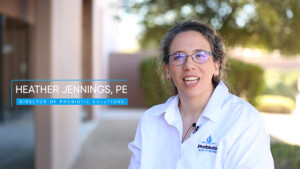
Brazil is one of the top 4 agricultural producers in the world, one of the largest agricultural exporters, and one of the largest consumers of fertilizers. BHN has been operating under a limited import license during the past year, which has allowed it to bring in small amounts of product for growers to try in anticipation of future sales.
Justin Smith, Executive Vice President of BHN Sales, said, “This is an incredible opportunity for us, one we’ve been working toward for over 2 years. Brazil’s fertilizer sector is growing rapidly, and they are particularly hungry for technologically advanced fertilizer products such as ours. We have terrific local operations and sales staff in place who are well connected throughout the Brazilian agricultural industry. This is a perfect time to introduce our Huma Gro® line of liquid fertilizers with Micro Carbon Technology®, and it won’t be too long before we also bring in our Fertilgold® Organics product line, as well. We conservatively estimate $4–$5 million in sales the first year, and it could grow much higher.”
BHN currently has 20 Huma Gro® liquid crop nutrition and protection products registered for sale in Brazil and will begin shipping immediately. Registered products are in the categories of Macronutrients, Micronutrients, Growth Managers, Soil Fertility, Organic Acids, and Biopesticides. It is anticipated that more products will be registered in the future. Additional information on Huma Gro® products is available at https://www.humagro.com/.
Sales inquiries for Brazil may be directed to:
Huma Gro Brasil
Rua Independência 3562 – Vila Santo Antônio
São José do Rio Preto, São Paulo, Brasil
CEP: 15.040-400
(0055)17 3234-1012
(0055)17 3234-1538
BHN has been selling agricultural fertilizers in the United States since 1973 and currently sells in 33 countries around the world—including most of the other countries in South America.
Related Posts

New Video: 8 Essential Products for Wastewater Bioremediation
n this video, Heather Jennings, PE, Director of Probiotic Solutions®, provides an introduction to 8 essential products for wastewater bioremediation.

On The Brink: Farm Crisis Fears
Corn growers and specialty crop producers are facing mounting financial pressure as input costs soar and commodity prices drop. With farm aid ramping up and the DOJ investigating antitrust concerns, U.S. agriculture sits on the edge of a potential crisis.

How the “Three Sisters” Fed a New World
Discover how the Native American “Three Sisters” farming system, corn, beans, and squash, created a powerful, regenerative growing method that helped feed the New World and shaped sustainable agriculture long before modern science.

